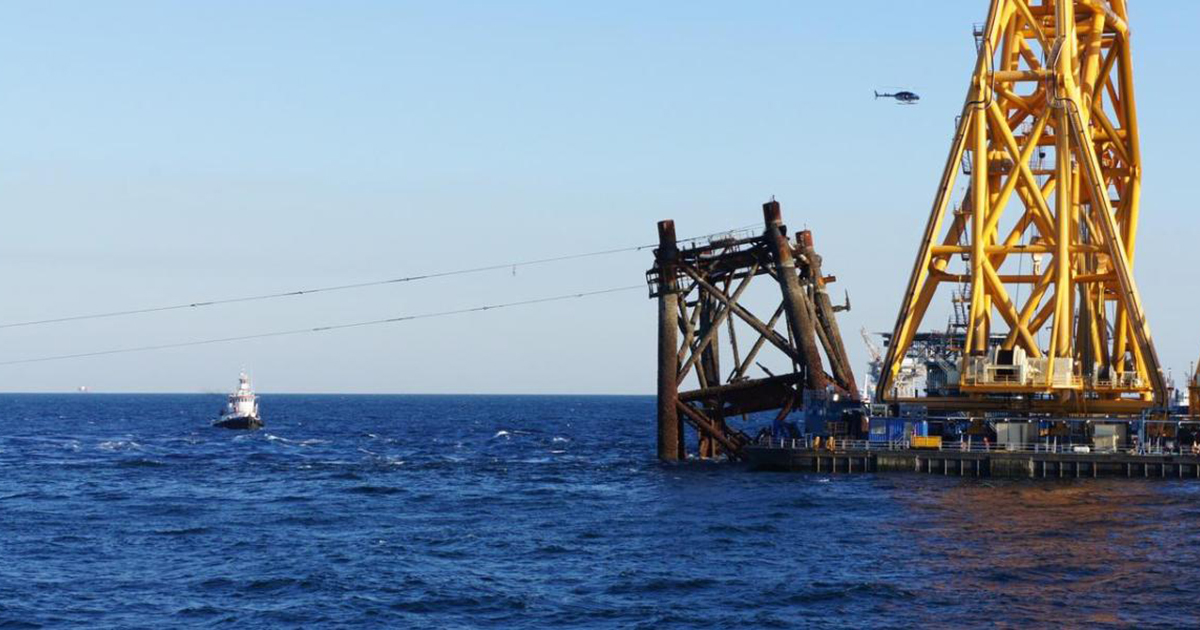A final rule from the Bureau of Ocean Energy Management (BOEM) was announced to protect taxpayers from covering costs that should be borne by the oil and gas industry when offshore platforms require decommissioning. With this action—which updates 20-year-old regulations—BOEM has substantially strengthened financial assurance requirements for the offshore oil and gas industry operating on the US Outer Continental Shelf (OCS).
The costs to decommission oil and gas facilities on the OCS are substantial, and if companies fail to meet their decommissioning obligations those costs fall to American taxpayers. The Government Accountability Office (GAO) found that previous practices did not effectively ensure that industry operators meet decommissioning deadlines for offshore wells and platforms at the end of their useful lives, potentially leaving the costs to be borne by American taxpayers. The final Risk Management and Financial Assurance for OCS Lease and Grant Obligations rule amends existing regulations to respond to those concerns and reduce financial risks associated with OCS development by substantially increasing the level of financial assurances that operators must provide in advance.
“The American taxpayer should not be held responsible when oil and gas companies are unable to clean up after their own operations. The Interior Department is committed to ensuring that the federal oil and gas leasing program is implemented fairly, with accountability and transparency,” said Secretary Deb Haaland. “This final rule updates, simplifies and strengthens outdated requirements to ensure that taxpayers are protected and current operators are held responsible for their end-of-lease cleanup obligations on the Outer Continental Shelf.”
“For far too long, the federal government has failed to follow through on measures to ensure accountability for oil and gas companies operating offshore,” said Principal Deputy Assistant Secretary for Land and Minerals Management Dr. Steve Feldgus. “Coupled with our recent announcement from the Bureau of Land Management, the Department is ensuring that we have a modern oil and gas leasing program that protects taxpayers’ interests.”
“The offshore oil and gas industry has evolved significantly over the last 20 years, and our financial assurance regulations need to keep pace,” said BOEM Director Elizabeth Klein. “Today’s action addresses the outdated and insufficient approach to supplemental bonding that does not always accurately capture the risks that industry may pose for the American taxpayer – like financial health of a company or the value of the assets that the lessee holds.”
Existing regulations have not kept pace with industry changes, such as aging OCS infrastructure, the transfer of near end-of-life properties from large companies to smaller companies with fewer financial resources, or the complex financial security arrangements between and within companies. The new rule establishes two metrics by which BOEM will assess the risk that a company poses for American taxpayers:
- Financial health of a company. The rule streamlines the number of factors BOEM uses to determine the financial strength of a company by using a credit rating from a Nationally Recognized Statistical Rating Organization, or a proxy credit rating equivalent.
- Reserve value. BOEM will consider the current value of the remaining proved oil and gas reserves on the lease compared to the estimated cost of meeting decommissioning obligations. If the lease has significant reserves still available, then in the event of a bankruptcy, the lease will likely be acquired by another operator who will assume the plugging and abandonment liabilities.
Companies without an investment-grade credit rating or sufficient proved reserves will need to provide supplemental financial assurance to comply with the new rule.
Additionally, the rule clarifies that current grant holders and lessees must hold financial assurance to ensure compliance with lease obligations and cannot rely on the financial strength of prior owners. BOEM continues to maintain its ability to pursue prior lessees to meet decommissioning obligations.
Under the new rule, BOEM estimates industry will be required to provide $6.9 billion in new financial assurances to protect American taxpayers from assuming industry decommissioning costs. To provide industry with flexibility to meet the new financial assurance requirements, BOEM will allow current lessees and grant holders to request phased-in payments over three years to meet the new supplemental financial assurance demands required by the rule.
Today’s final rule follows a proposed rule issued by BOEM in June 2023, which received over 2,000 public comments that informed its development.
For more information, please see BOEM’s website.


